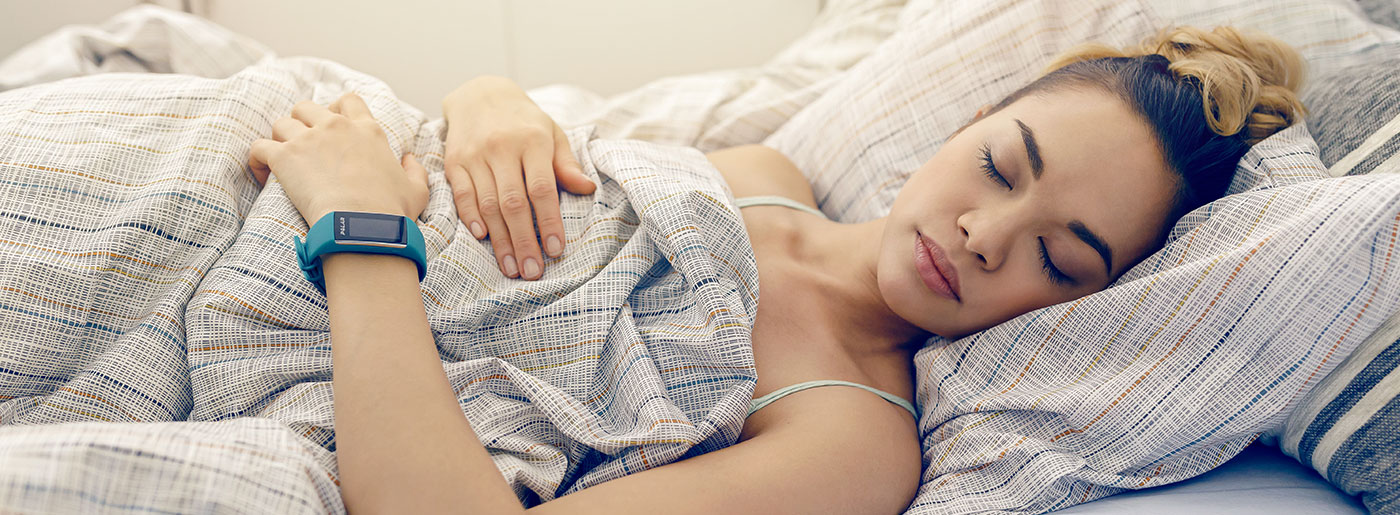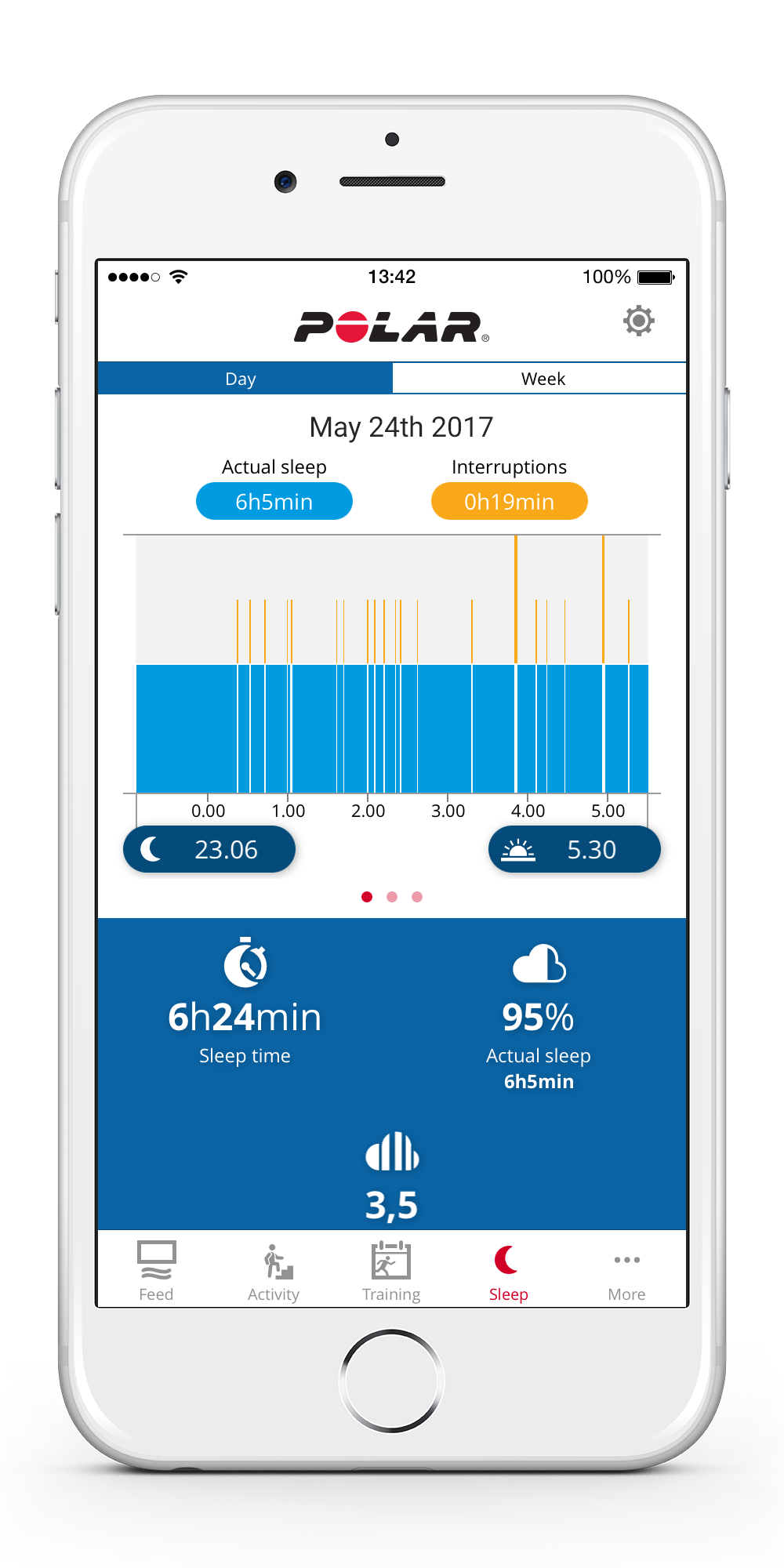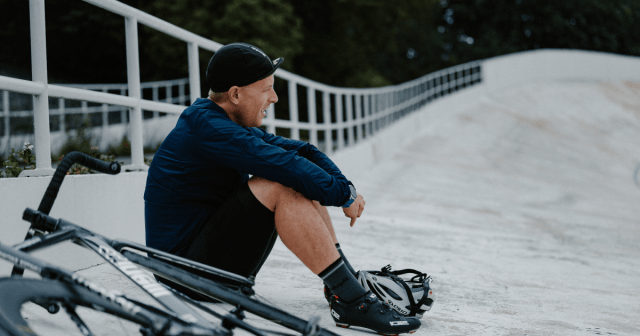Studies and experts alike say we should all be snoozing for seven hours a night (while pro athletes sleep even more). That’s because sleep is key for our well-being – and the lack of sleep can hurt our fitness performance.
Nevertheless, for many of us, even the minimum of seven hours is as unachievable as shaving two hours off your marathon time. In other words, it may be doable, but it’ll take some serious effort and sacrifice, major lifestyle changes, and possibly some live-in help.
But making that change happen is essential if you’re serious about improving your performance, seeing better fitness results or just feeling better and more energetic in general.
Sleep tracking is a tool that helps you:
- Understand how you sleep.
- How much more (or better) you should be sleeping.
- How you should change your bedtime routines and sleeping habits.
Let’s first take a look at the negative affects lack of sleep may cause and then dive into how sleep tracking can help to improve your sleep.
How lack of sleep affects fitness and performance?
You may think, “sleep is sleep,” and that if you’re snoozing, it’s quality shut-eye. “But that’s not the case,” says Michael Breus, PhD, DABSM, the clinical psychologist best known as ‘The Sleep Doctor‘.
“Both quality and quantity of sleep can affect your performance and bad sleep can be the ultimate game-changer when it comes to fitness and athletic performance.”
The key areas lack of sleep affects negatively are:
ENERGY Level
“Lack of deep sleep decreases glycogen storage,” Breus explains. “Without fuel in the tank, athletes run on reserves, and sleep deprivation can cause many negative effects, including testosterone reduction, human growth hormone reduction, increased energy expenditure, reduction in muscle memory, and increased inflammation.”
REACTION TIME
“Hundreds of studies show that decreased quality and quantity of sleep cause an increase in reaction time,” Breus says. Not what you want when you’re out on a training ride and a squirrel – or a car – darts out in front of you.
ACCURACY
“Hand/eye coordination has been directly linked to sleep deprivation,” Breus says.
DECISION MAKING
“Studies show that sleep deprived individuals will know the risks of their decisions, but will not care what those risks are, and may take risks unnecessarily,” Breus says.
MEMORY
“During all stages of sleep, the mind and brain are working to process new memories, consolidating them into long-term storage and integrating recently acquired information with past experience,” Breus says. In other words, you need sleep in order to boost your brain activity.
RECOVERY
“Sleep deprivation, sleep disturbance, and circadian rhythm disturbance all affect the overall restorative aspects of sleep, and can lead to an increase in your perception of pain.”
What’s the point of sleep tracking?
Sleep, by definition, is something that we humans are not very good at estimating, simply because we’re… well, asleep.
While getting seven hours a night may be the ideal goal, making sure you’re getting at least a few good hours is equally important. And the only way to know whether you’re getting solid sleep is to track it.
The Questions sleep Tracking Helps You To answer
Advanced sleep analytics will help you answer some of the basic questions you may have about your sleep, like:
- How much am I sleeping?
- What is my sleep routine like?
- Does this change I’ve introduced influence my sleep?
- Are there patterns to me sleeping poorly?
One of the main reasons we track something is so we can change it. The benefit of sleep tracking is that you can identify areas for improvement and introduce changes to your sleep habits.
With sleep tracking, you can:
- See the timing, amount and quality of your sleep.
- Understand your sleep habits.
- Get feedback on your sleep.
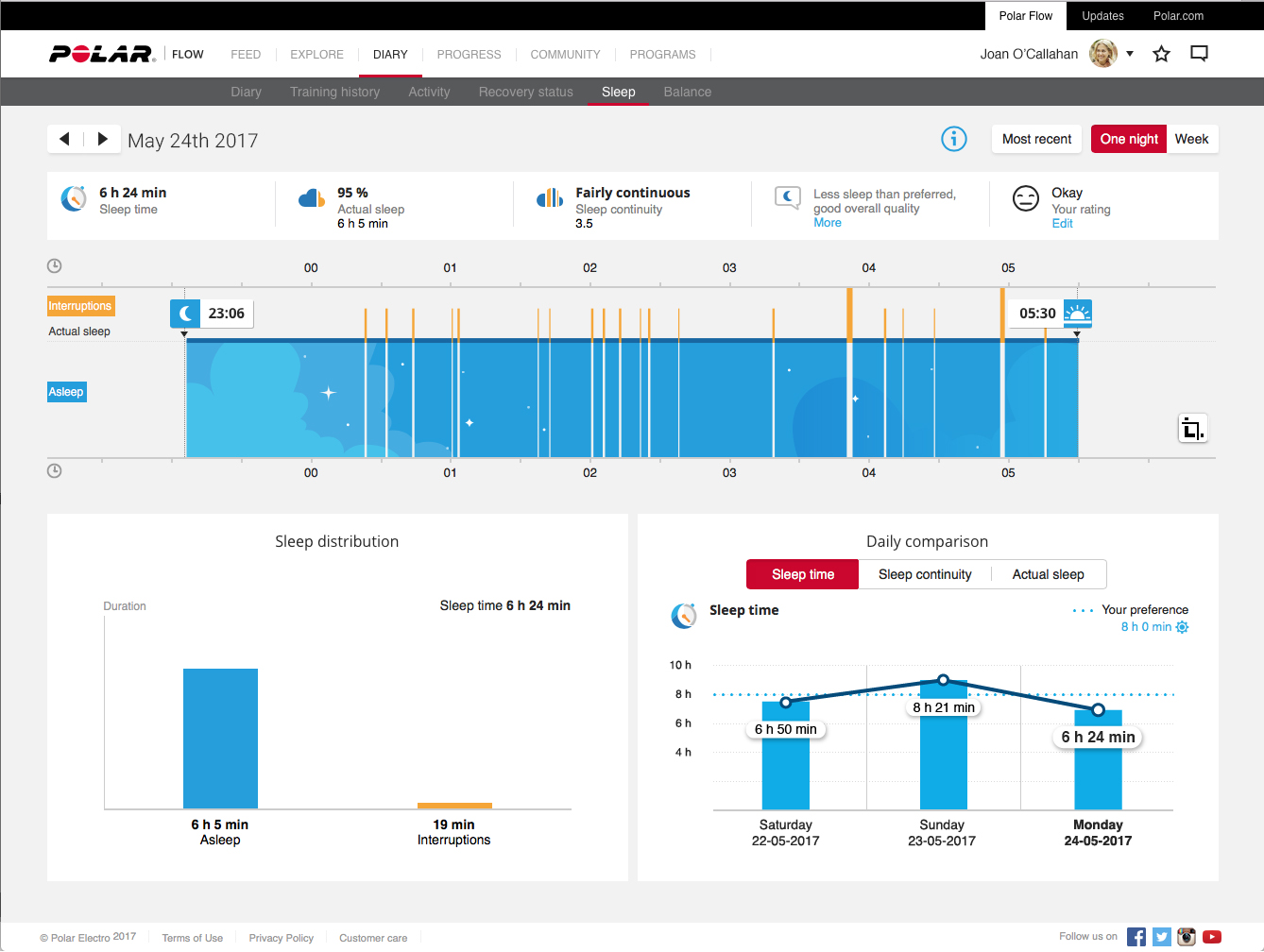
KEY sleep TRACKING METRICS – WHAT CAN YOU TRACK?
As said, it’s super hard to guesstimate how well you’ve slept, but what then is the insight and value sleep tracking can offer?
Here are a few examples of the basic sleep metrics you can track, for example with Polar Vantage V and Polar Vantage M, Polar A370 and Polar M430 that have the Polar Sleep Plus feature.
Sleep time
This is the time between falling asleep and waking up. For example, if you go to bed at 9.51 p.m. and fall asleep at 10 pm. and wake up at 6 a.m., your sleep time will be 8 hours.

Interruptions
You’ll typically have several short and long interruptions during a normal night’s sleep. You can see these interruptions on the timeline as short or long yellow bars. In the morning, we don’t usually remember the short interruptions, but if you have to get up to go to the bathroom during the night, you’re likely to remember that your sleep was interrupted.
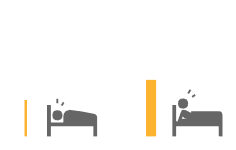
Actual sleep
This is the time you were actually sleeping (sleep time minus interruptions). If your sleep time is 8 hours (from the previous example) and you toss and turn for a total of 59 minutes, your actual sleep is 7 h and 1 min or 87%.
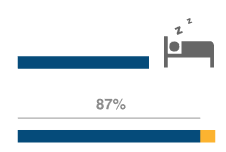
Sleep continuity
Sleep continuity is a metric that describes how continuous your sleep was. It’s assessed on a scale of 1–5, with 5 being the best measure. The lower the value, the more fragmented your sleep was. You’ll also get one of the following assessments of your sleep continuity:
- Very continuous sleep (5.0)
- Continuous sleep (4.0–4.9)
- Fairly continuous sleep (3.0–3.9)
- Fairly fragmented sleep (2.0–2.9)
- Fragmented sleep (1.0–1.9)
There are no hard numbers as to what constitutes an objectively good sleep continuity grade. Once you track your sleep for days and weeks, you’ll start seeing where your baseline is.
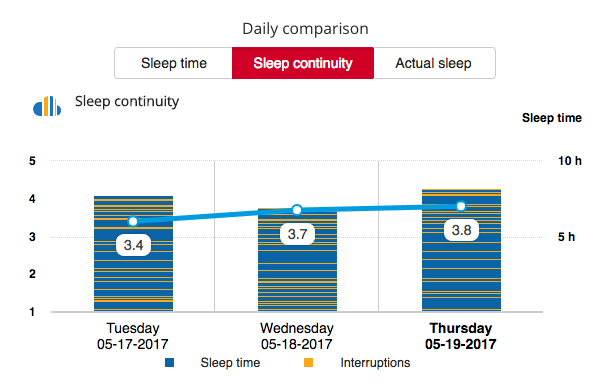
Sleep feedback
Polar Sleep Plus will also give you feedback for every night you track. It considers your subjective feeling and sleep time preference as well as the objective sleep quality and duration metrics, tracked with the accelerometer.
Sleep Tracking Summarized
How rested you feel depends largely on the quality of your sleep and how well you recovered during the night.
When assessing how well you’re sleeping, pay attention to the data-based feedback, but also to your subjective feeling.
Essentially, sleep tracking enables you to tune into your sleep and understand what external factors may have an influence on your sleep:
- Do you travel a lot for work and tend to sleep less when traveling?
- Do you have more restful sleep at the beginning of the week vs. the latter part because of changes in your workload?
- Do you sleep better when your bedroom is cooler?
Sleep tracking is a great tool for finding answers to all of these questions, and more.
If you liked this post, don’t forget to share so that others can find it, too.
Please note that the information provided in the Polar Blog articles cannot replace individual advice from health professionals. Please consult your physician before starting a new fitness program.
